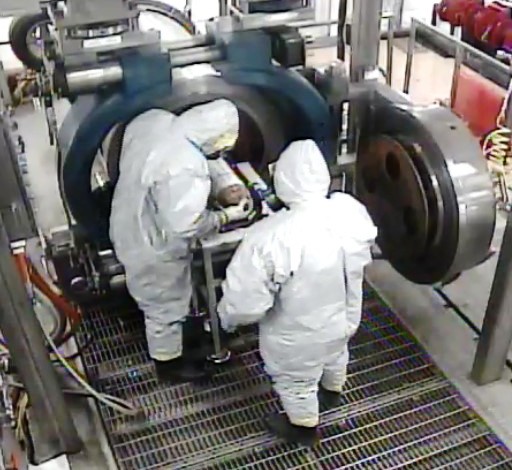
For the past three years, the United States has been in violation of an international treaty banning chemical weapons. The country is about 90 percent of the way toward eliminating its stockpiles, but weapons cashes in two states -- Colorado and Kentucky -- remain.
Now, after years of delays, U.S. officials are saying progress is being made at the site with the largest cache in the country: the U.S. Army chemical depot near Pueblo. Last week, workers there began the long and difficult task of eliminating the first of about 780,000 mustard agent weapons.
Bruce Huenefeld, a site manager at the Pueblo depot, says the intent is clear: “We are excited and proud to be back on a path of ridding our nation of chemical weapons."
The first job on the depot's list: neutralize 1,400 dangerous, damaged shells.
"Some of these munitions are so old they have begun to leak or to decay," says David Koplow, a professor of law at Georgetown University and an expert on the Chemical Weapons Convention. "Those need to be handled one-by-one."
The United States never used mustard agent in combat, Koplow says. But other countries did, particularly during the trench warfare of World War I. The agent burns the skin and lungs if inhaled, causing blistering, and potentially death -- or complications that lead to death. It was also used to confuse and disrupt troops during combat, forcing them to carry and don cumbersome protective equipment, Koplow says.
In 2012, as the United States missed a treaty deadline to destroy the weapons -- a deadline that had already been extended -- Koplow released a critical paper, "Train Wreck: The U.S. Violation of the Chemical Weapons Convention."
He says the United States has done a poor job of dismantling the remaining weapons.
"Over the years, this program was just never given the priority, the attention, the funding necessary to make it succeed, and outside observers, including the [Government Accountability Office] and others, have routinely criticized the management of the program," he says.
Koplow argues the delay in destroying its chemical weapons leaves the United States open to criticisms in the realm of diplomacy. Officials in Iran, for instance, may argue that the United States is out of compliance with the chemical weapons treaty, which can make the United States appear hypocritical as it is engages in nuclear talks with that country, Koplow says.
"It's a black eye, diplomatically," he argues.
Russia, another country with massive stockpiles of chemical weapons, is also out of compliance with the Chemical Weapons Convention. Yet both countries are on track to destroy their weapons in the coming years, Koplow says. Many of the weapons in the two countries are expected to be eliminated before the end of the decade.
There were once several sites across the United States harboring chemical weapons stockpiles. But weapons at most of the sites were disposed of through special incinerators, Koplow says.
Communities around Pueblo and the Blue Grass Army Depot in Kentucky raised health and environmental concerns, objecting to the use of incinerators. That led to different disposal methods for the two sites -- and has contributed to the ongoing violation of the treaty deadline, Koplow says.
A smaller cache of chemical weapons is stored at the Kentucky site, including mustard and sarin agents.
READ: The General Obligations of the Chemical Weapons Convention.








